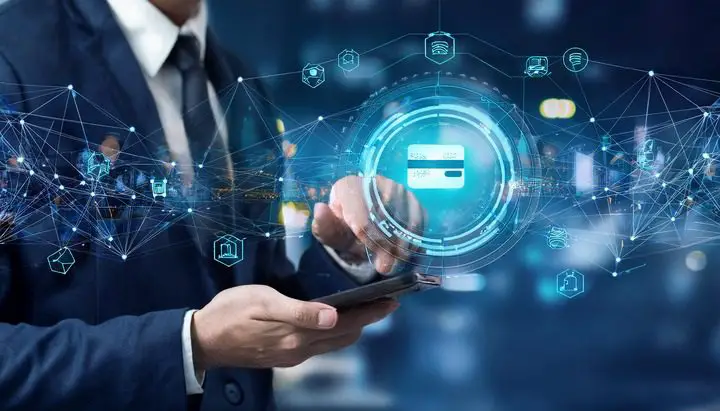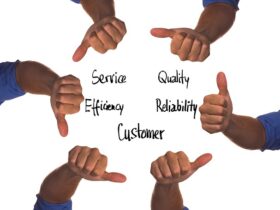Over the past decade, payment technology has transformed how we handle money. Remember a time when paying meant pulling out cash or waiting while a card swiped through a machine? Those days are fading fast, thanks to innovative solutions that prioritize simplicity, speed, and security. These new tools don’t just make things quicker—they make every transaction feel almost effortless.
Below, we’ll dive into the major developments in payment tech and how each one is reshaping our daily interactions with money.
Contactless Payments: Making Transactions Touch-Free
Contactless payments are everywhere now, and they’ve become especially popular since the rise of contact-free interactions. Whether you’re paying with a card, phone, or smartwatch, a quick tap is all it takes. The tech behind it uses Near Field Communication (NFC), enabling secure and fast payments without physical contact.
Why Contactless is Changing the Game: These payments are incredibly fast—ideal when you’re in a hurry. You simply tap and go, with no need for PINs or signatures, and it’s just as secure as traditional card payments. Plus, NFC encryption protects data in ways that traditional swipes never could.
In 2023 alone, the global market for contactless payments was projected to surpass $10 trillion, a sign of just how quickly it’s grown and how widely it’s accepted today.
Digital Wallets: Simplifying What You Carry
Digital wallets, such as Apple Pay, Google Pay, and Samsung Pay, are becoming the new wallets of choice. They store payment information digitally, making it easy to pay for things without your physical wallet. Besides payments, they also store loyalty cards, tickets, and even your boarding pass.
The Convenience Factor: With a digital wallet, you don’t need to carry multiple cards. Just link your payment method, and your phone becomes your all-in-one wallet. Transactions are secure, with most digital wallets using biometric verification like Face ID or fingerprint scanning.
Imagine you’re heading out for a quick jog and realize you need to pick up a coffee. With your digital wallet, you don’t need anything but your phone. This level of convenience is why digital wallets are seeing widespread adoption globally.
Buy Now, Pay Later (BNPL): Increasing Financial Flexibility
With Buy Now, Pay Later (BNPL) services like Afterpay, Klarna, and Affirm, customers can make purchases upfront and pay later in installments. These services allow people to split purchases into smaller payments over time, which is convenient for larger purchases without the need for a traditional credit line.
Why Consumers Love It: The biggest appeal is flexibility. For those who prefer to avoid credit cards or high interest rates, BNPL offers a straightforward way to manage budgets. Installments come with minimal (or sometimes no) fees, making it an affordable option for consumers of all ages.
Over 60% of Millennials and Gen Z are using BNPL options at least once a year, indicating a shift toward flexible payment options over traditional credit.
QR Code Payments: A Solution for Small Businesses
While QR codes have been around for years, their use in payments has exploded. They’re especially popular in countries like China and India, where QR code payments are more common than card payments. All you need is a smartphone camera to scan the code, and you can complete a payment instantly.
Why It’s a Win-Win: For businesses, QR codes are affordable since they don’t require costly payment terminals. For consumers, it’s simple: scan the code and pay, no need to carry cash or cards. QR code payments also allow for contactless payments, adding to their appeal.
By 2024, it’s estimated that over 2.2 billion people worldwide will use QR codes for payments. Small businesses and street vendors have been the biggest adopters, as QR payments cut costs and keep transactions quick.
Biometric Payments: More Security, Less Hassle
Biometric payments use unique physical traits—like fingerprints or facial recognition—to verify your identity. This technology ensures that only you can make transactions with your device, reducing the chances of fraud.
Why It Matters: With identity theft on the rise, biometric payments add a layer of security that PINs or passwords can’t match. Since biometrics can’t be easily replicated, they reduce risks for consumers and businesses alike.
Practical Scenario: Many people find biometrics especially useful for quick payments on their phones. For instance, if you’re ordering groceries and need to confirm the payment, simply looking at your phone screen can complete the transaction without entering any additional details.
Voice Payments: When Speaking is Faster than Typing
Voice-activated payments are beginning to make waves, allowing people to make purchases simply by speaking a command. With the rise of virtual assistants like Siri, Alexa, and Google Assistant, paying bills or ordering items online has never been easier. Voice payments work by recognizing your voice and authenticating your command.
The Hands-Free Advantage: Voice payments are perfect when multitasking. If you’re cooking dinner and realize you need more groceries, you can ask your virtual assistant to place an order, and it’s done. It’s simple, quick, and efficient.
Voice payments are forecasted to account for billions in transactions within the next five years. With smart homes becoming more popular, voice-activated payments are set to become part of the daily routine for many consumers.
Crypto Payments: A New Way to Pay
Cryptocurrency payments, though still emerging, are gaining traction as a global option. Bitcoin, Ethereum, and stablecoins offer a decentralized payment method, which appeals to those seeking more control over their money and lower transaction fees. Crypto can also be faster and more efficient for international payments.
Crypto’s Unique Appeal: Because it operates outside traditional banking, crypto is borderless and less subject to local banking rules. This can make it especially attractive in countries where banking infrastructure is limited or international payments are heavily regulated.
Did You Know? Companies like PayPal and Square are now offering crypto payments, and more retailers are beginning to accept them as well. This trend reflects a growing acceptance of digital currencies in everyday commerce.
Embedded Payments: Simplifying Payments in Everyday Apps
Embedded finance means that you can pay for goods and services without leaving the app or platform you’re using. Apps like Uber, for example, allow customers to book a ride and pay all in one place. This keeps the payment process seamless, quick, and integrated into the user experience.
Seamless Experience: When payments are embedded into apps, they become practically invisible, making transactions feel less like an interruption and more like a natural part of the experience. This method keeps things moving smoothly, particularly for busy consumers who don’t want to spend time on the transaction details.
Food delivery apps like DoorDash or Uber Eats let you place an order and complete payment all within the app, reducing the need for separate payment processes. It’s a one-stop shop for service and payment.
Looking Ahead: What’s Next for Payment Technology?
Payment technology will likely continue evolving, making transactions even more integrated and invisible. We can expect to see more augmented reality shopping, as well as personalized payment solutions that adapt to individual consumer behavior. Overall, as payment technology becomes more advanced, consumers can expect a future where transactions are faster, safer, and easier than ever.


































Thank you for the good writeup It in fact was a amusement account it Look advanced to far added agreeable from you However how could we communicate
This is really interesting, You’re a very skilled blogger. I’ve joined your feed and look forward to seeking more of your magnificent post. Also, I’ve shared your site in my social networks!
Hello.This article was extremely fascinating, especially because I was investigating for thoughts on this subject last Thursday.
Great post. I was checking constantly this blog and I am impressed! Extremely useful info particularly the last part 🙂 I care for such information much. I was looking for this certain information for a very long time. Thank you and good luck.
hi!,I love your writing very so much! percentage we keep up a correspondence extra approximately your post on AOL? I require a specialist in this space to unravel my problem. Maybe that is you! Looking ahead to look you.